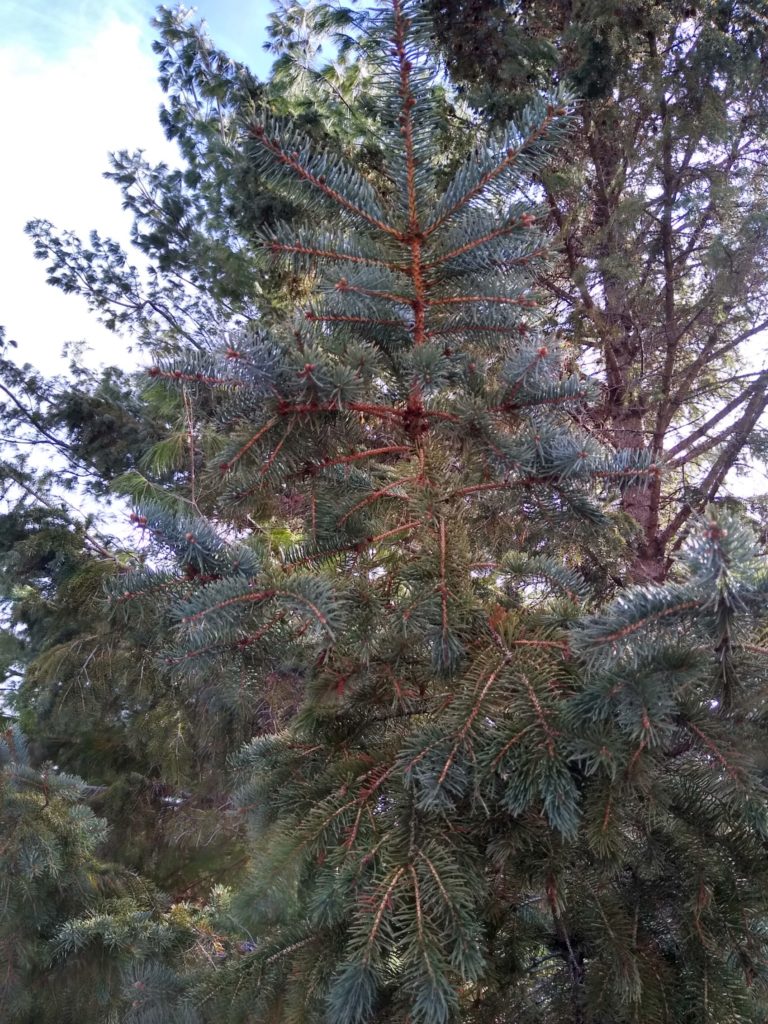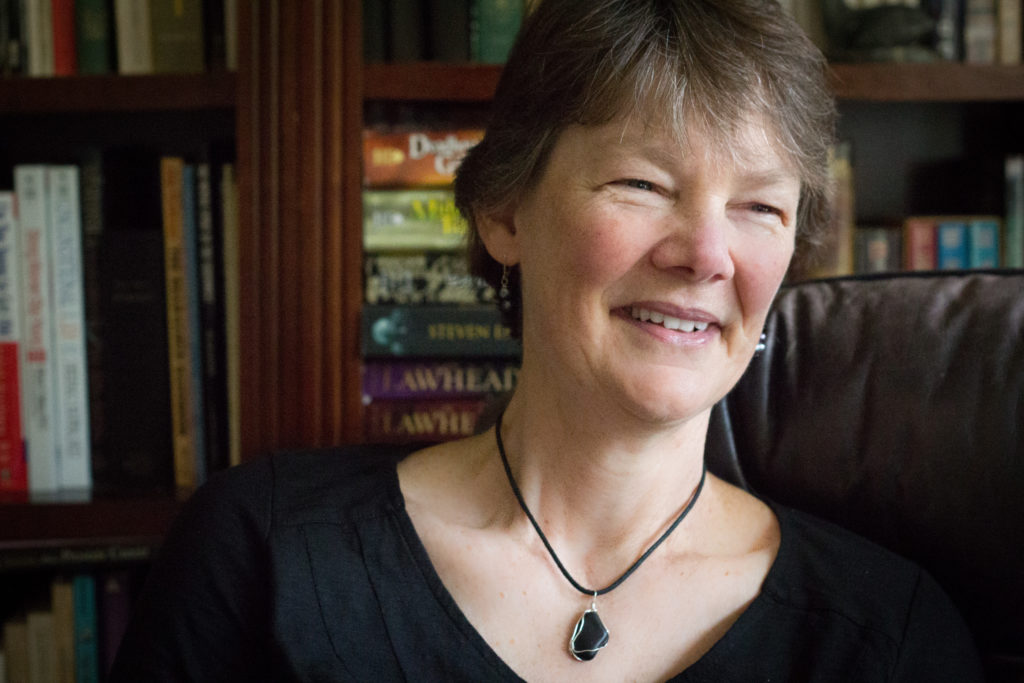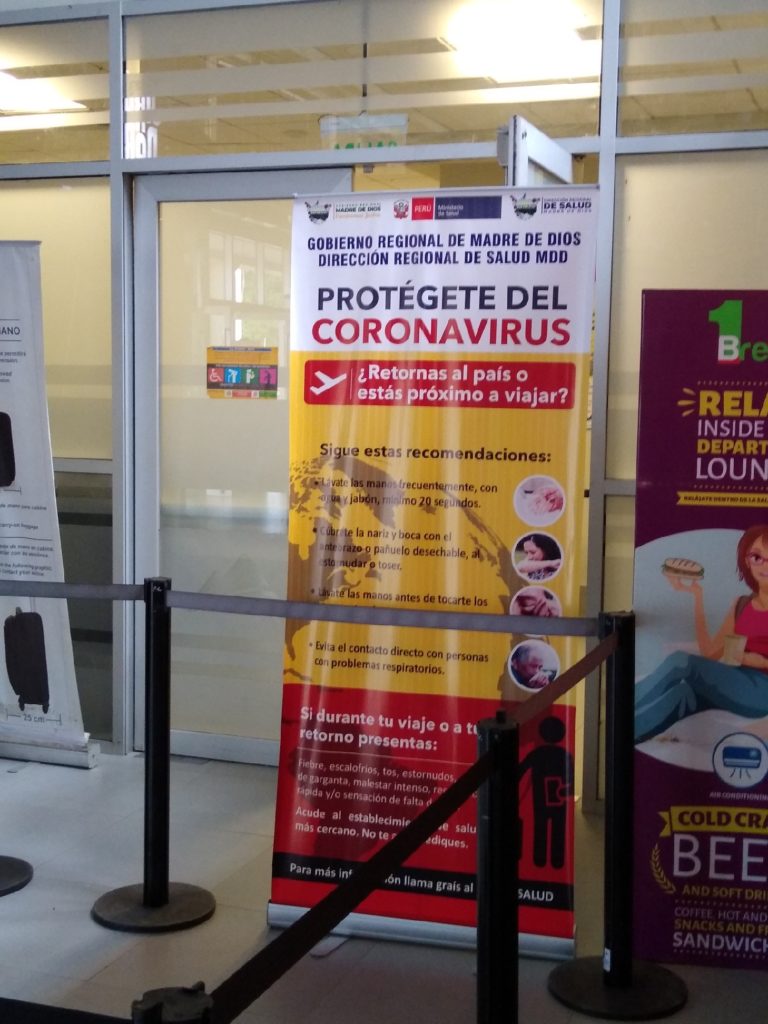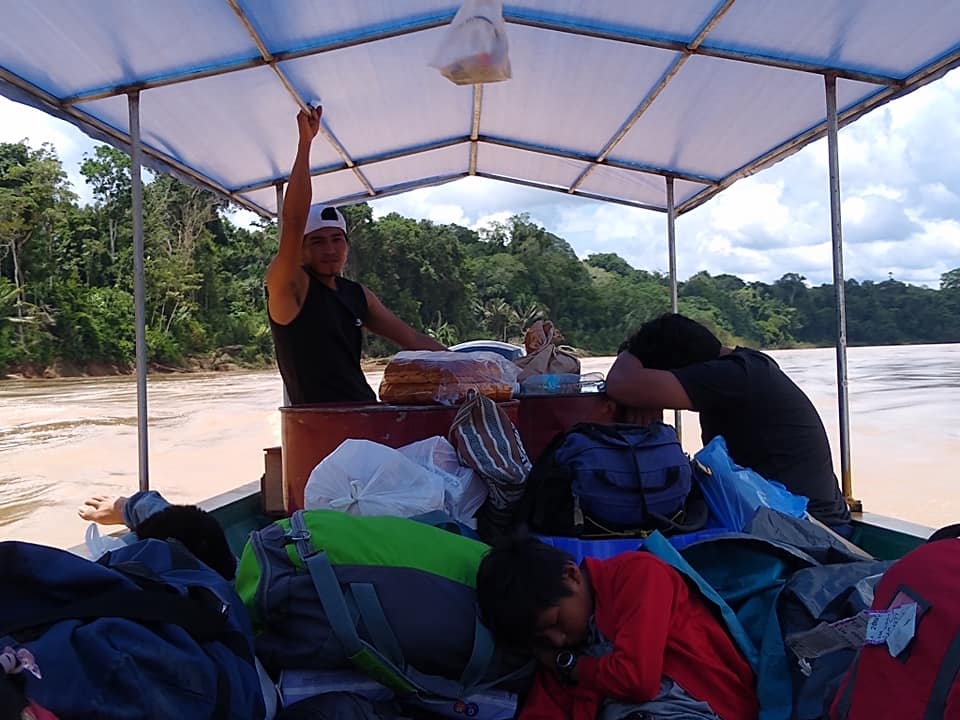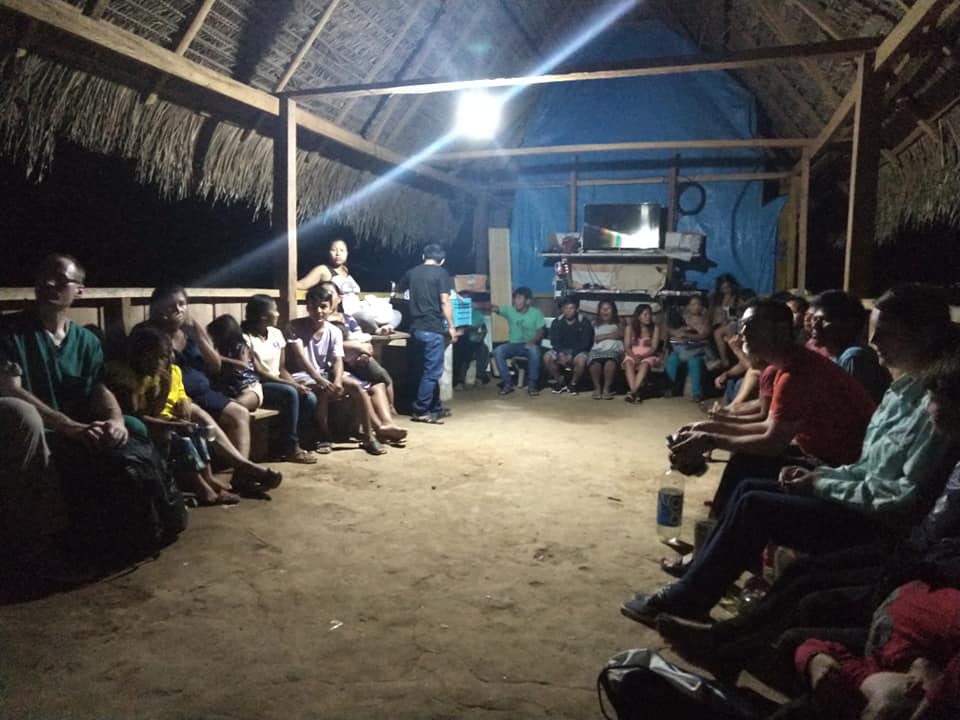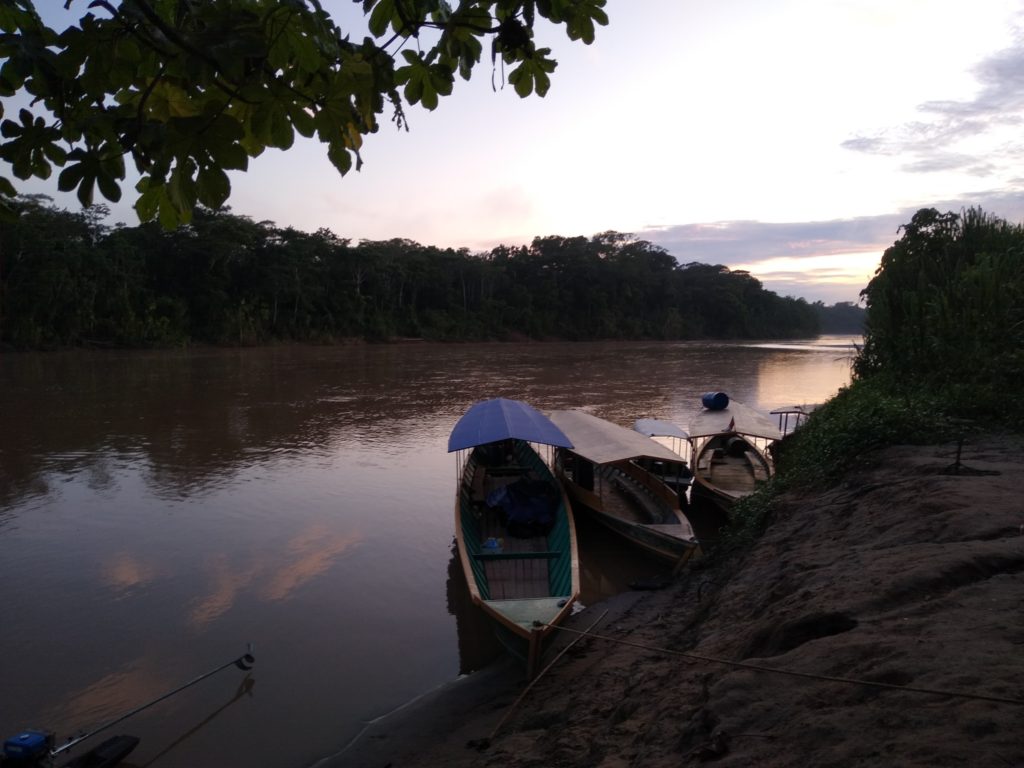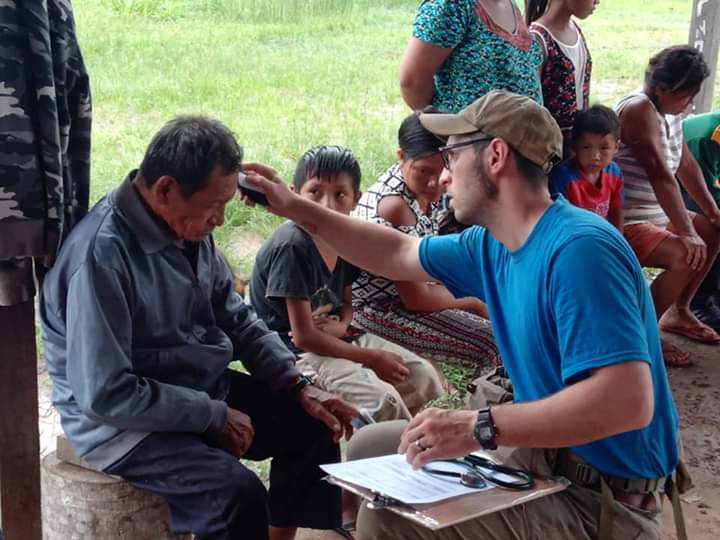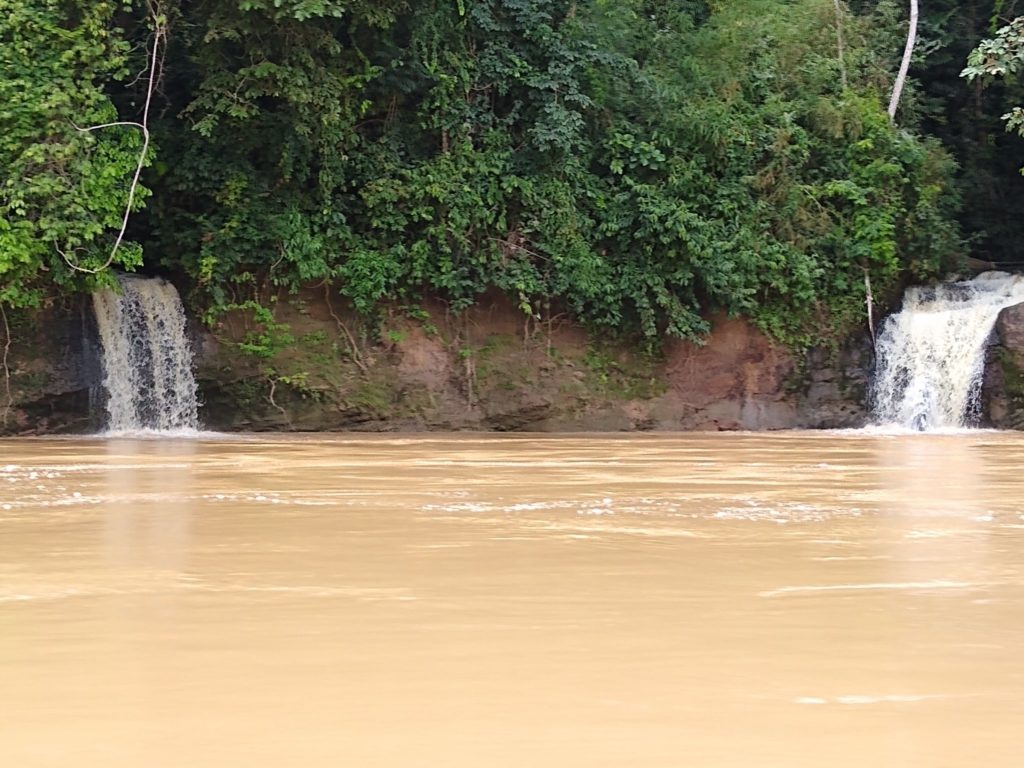Wednesday: It’s not worth it, save for the love of people—fed by an intense love for God.
He decidido seguir a Cristo. No vuelvo atras, no vuelvo atras…
Each day, our team’s routine varied little. Pack the boat. Go to the next village. Unpack the boat. Set up camp. Host clinic. Eat dinner. Try to sleep in the insanity-inducing heat. But somewhere in that itinerary of jungle travel we always hosted a service of singing, Bible reading, and a telling of the greatest tale of all time.
Our boat eventually made it to the furthest village up the Las Piedras river. It’s the furthest that we traveled. It’s the furthest village up that river. And it’s the furthest up the river anybody is allowed by the Peruvian government. It took us 18 hours by boat to get here. On the map, it’s just a large space of green.
The Brazilian border lies up the river a mere 30 minutes by boat. And the village of Monte Salvado is the last outpost, bordering on a kind of refuge. Here begins an area of land which encompasses a mass of Peru set aside for indigenous peoples who have yet to be contacted—tribal people who want to be left alone. Last October, a group of these people attacked Monte Salvado and stole food, shooting somebody in the head with an arrow in the process. That was October, not 100 years ago.
But the Yine people live here nonetheless. And they thrive. But not without need.
Yes, the people that live along the Las Piedras river need medical care. And we gave it. But they need something else so much more.
When the missionary who led us on the trip first ventured into that part of Peru, the people there gave him a name in the Yine language. It’s unpronounceable for the American tongue, but roughly translated it means A Bird Who Brings Bad News and Good News. And when he traveled up the Las Piedras river, he did bring both bad news and good news.
The bad news was that each and every person in God’s creation is flawed, and completely misses the mark. Humankind is rebellious against God who demands justice. And from our conception, our veins course with sin. We have no chance of fixing this problem, because the price is too great.
But he also brought good news. God’s own Son payed the price. He was perfect and died to pay that price. He died in our place and made it possible to have a relationship with the perfect Creator. We now have only to turn to Him in belief.
This week of hosting clinics and services is far too much work. Long days, and hard work make it seem like it’s not worth the trouble. But these people need care for both body and soul.
They need to hear. And how will they hear without a preacher?
It’s not worth it, save for the love of people—fed by an intense love for God.
I have decided to follow Jesus. No turning back, no turning back…
anthony forrest
Related Tales:
Prologue to Field Notes, Peru: Return to South America
Part 1 of Field Notes, Peru: Medical Nomads
